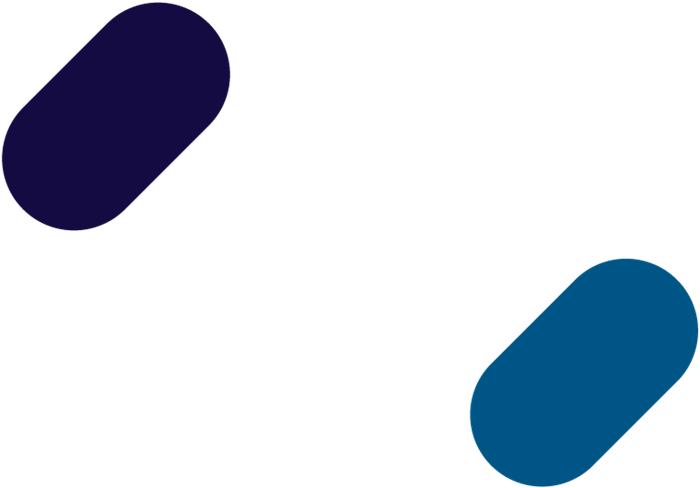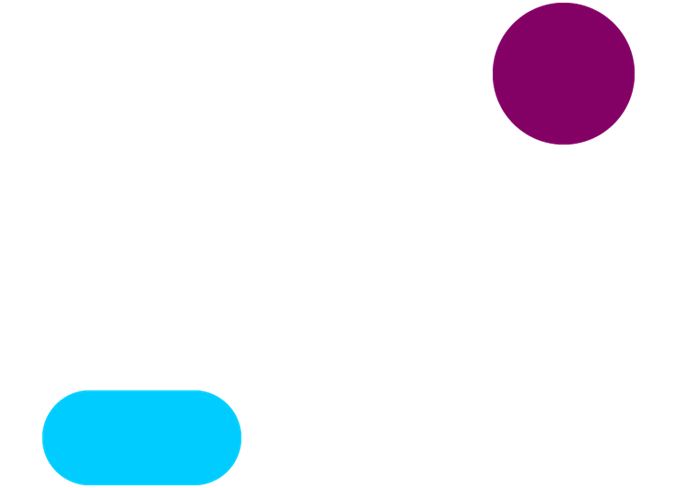
Explore IQVIA by region
As a global community, IQVIA continuously invests and commits to advancing human health.
Americas
Europe
Asia & Oceania
Middle East & Africa

Regional Thought Leadership
SOLUTIONS
Research & Development
Real World Evidence
Commercialization
Safety & Regulatory Compliance
Technologies
LIFE SCIENCE SEGMENTS
Consumer Health
Emerging Biopharma
Generics
MedTech
Pharmaceutical Manufacturers
HEALTHCARE SEGMENTS
Information Partner Services
Financial Institutions
Global Health
Government
Patient Associations
Payers
Providers
Therapeutic and Specialty Areas
Therapeutic and Specialty Centers of Excellence offer scientific expertise, therapeutic insights and clinical trial experience to expedite new therapies for patients.
LEARN MORE
Therapeutic and Specialty Areas
Allergy & Respiratory
Biosimilars
Cardiovascular
Cell & Gene Therapy
Central Nervous System
Dermatology
Early Phase Clinical Development
Endocrinology
GI & Hepatology
Infectious Diseases & Vaccines
Nephrology
Obesity
Oncology & Hematology
Ophthalmology
Pediatrics
Rare Diseases
Reproductive Health
Rheumatology
Harness the power to transform clinical development
Reimagine clinical development by intelligently connecting data, technology, and analytics to optimize your trials. The result? Faster decision making and reduced risk so you can deliver life-changing therapies faster.
Research & Development Overview

Early Phase Clinical Trials
Track the impact of new drugs and establish proof of concept faster with innovative early clinical development strategies.
Phase IIb/III Trials
Advanced AI and technology help you navigate regulatory complexity, optimize enrollment strategies and drive patient engagement.
Patient & Site Centric Solutions
Support patients and trial sites with tools and services that improve recruitment, engagement, and study execution.
Functional Services
Agile, data-driven trial solutions that connect people, processes, and technology for faster, smarter R&D delivery.
Global Laboratories
Specialty and central lab solutions backed by scientific rigor and expertise in biomarkers and antibody drug discovery.
R&D Consulting
Optimize your R&D strategy, reduce risk and ensure compliance with data, analytics, AI-powered technology and expertise.
Real World Evidence. Real Confidence. Real Results.
Generate and disseminate evidence that answers crucial clinical, regulatory and commercial questions, enabling you to drive smarter decisions and meet your stakeholder needs with confidence.
REAL WORLD EVIDENCE OVERVIEW

Real World & Health Data Sets
Global real world data exploration at your fingertips enables critical insights across the product lifecycle.
Medical Affairs
Access end-to-end Medical Affairs solutions to plan, generate, and disseminate trustworthy medical evidence.
IQVIA Health Communications Group
Deliver communications that engages stakeholders, advances healthcare and improves lives.
Health Data Apps & AI
Streamline research process and gain access to real world data discovery with the largest agnostic health data catalog.
Health Data Transformation
Accelerate disparate health information into insight-rich, value-driving data transformation at scale.
Study Design
Identify the right study design to answer your research questions with unparalleled data, technology, AI and analytics.
Evidence Networks
Access global evidence networks to connect data, technology, and analytics for broader study options and collaboration.
Health Economics & Value
Generate the evidence you need to go from research to market, overcome regulatory hurdles, or support payer approval.
Regulatory and Safety
Explore options with innovative RWE study approaches to prove your product’s safety and effectiveness.
Natural Language Processing
Extract insights at scale from unstructured text with IQVIA’s advanced NLP platform—fast, accurate, proven.
Real World Evidence Library
Explore our Real World Evidence Library for the latest approaches to answer clinical, regulatory, and commercial questions.
Make treatments stand out. Ensure differentiation lasts.
Enhance commercial effectiveness through precision HCP and patient engagement, backed by unrivalled data, healthcare-grade AI, and domain expertise.
COMMERCIALIZATION OVERVIEW

Data and Information Management
Make better decisions with quality data. Drive business strategies, optimize engagement and uncover new opportunities.
Launch Strategy and Management
Achieve launch excellence with a proven partner. Maximize launch performance and realize full market potential.
Commercial Analytics & Consulting
Gain precision insights for improved commercial effectiveness. Accelerate growth with fact-based decision making.
Commercial Engagement Services
Fuel customer engagement and patient adherence with patient support and commercial outsourcing services.
Established Brands Optimization
Defend market share and maximize value with proven approaches for established brands across global markets.
Service driven. Tech-enabled. Integrated compliance.
Orchestrate your success across the complete compliance lifecycle with best-in-class services and solutions for safety, regulatory, quality and medical information.
COMPLIANCE OVERVIEW

Safety Pharmacovigilance
Pharmacovigilance powered by human expertise and advanced technology to deliver speed, accuracy, and global compliance.
Regulatory Compliance
Regulatory solutions blending human expertise and technology to cut complexity, cost, and risk across the lifecycle.
Quality Compliance
Break down quality and compliance silos with integrated software and services across the full product lifecycle.
Medical Information
Medical information delivered by skilled professionals and innovative technology for quality, scalable support worldwide.
Commercial Compliance
Experienced teams and advanced technology deliver scalable, transparent, and reliable commercial compliance.
Harness technology for a healthier world.
IQVIA Technologies helps life sciences accelerate innovation to make a greater impact on human health. Our transformative technologies harness intelligence, integrate industry leading data and analytics, and use advanced AI/ML capabilities to unleash business potential faster.
TECHNOLOGIES OVERVIEW

Site Suite
Increase transparency, improve communications and reduce administrative burden of your clinical trials from start to finish.
Patient Suite
Simplify trials with a solution that improves operations, elevates experience, and drives better patient outcomes.
Clinical Trial Financial Suite
AI-powered platform unifying budgeting, contracting, forecasting, and payments for streamlined clinical trial financial management.
Safety Suite
Streamline pharmacovigilance with AI-powered automation, global expertise, and real-time safety insights.
Quality Management and Regulatory Suite
Streamline global QA/RA processes with AI-enabled QMS & RIM for compliance, efficiency, and faster market access.
Partner Programs
Join our partner ecosystem to build alliances, drive business value, and create mutually beneficial relationships.
Technology Insights
Check out the latest tech-related resources, thought leadership and best practices for insights that matter most in Life Sciences.
Commercial Compliance
Work with compliance experts to create and manage processes ensuring global regulation compliance.
The IQVIA difference
CLINICAL PRODUCTS
Planning Suite
Grant Plan
Site Suite
Clinical Trial Payments
Investigator Site Portal
One Home for Sites
Patient Engagement Suite
Electronic Clinical Outcome Assessment (eCOA)
Interactive Response Technology (IRT)
Clinical Data Analytics Solutions
COMMERCIAL PRODUCTS
Information Management
Launch Strategy & Management
Pricing & Market Access
Brand Strategy & Management
Promotional Engagement
Patient Insights for HCP Engagement
Alerts & Triggers
Orchestrated Analytics
Next Best Action
Patient Engagement and Support
COMPLIANCE, SAFETY, REG PRODUCTS
IQVIA Vigilance Platform
Commercial Compliance
Regulatory Compliance
SmartSolve® RIM
Quality Compliance
SmartSolve eQMS
Safety & Pharmacovigilance
REAL WORLD PRODUCTS
Real World & Healthcare Data
Health Data Apps & AI
Analytics Research Accelerator
Expert Ecosystem
AI Patient & HCP Profiling- Commercial
AI Patient & Provider Profiling- Med Affairs
AI Patient & HCP Profiling- Healthcare
Natural Language Processing
Market Access Insights
Direct-to-Patient Research
Innovation at IQVIA
At IQVIA our foundation is built on innovation. We are committed to finding new and smarter approaches to solving customer challenges. Explore some of the latest ways we can help drive your results.

IQVIA AI
We’ve developed a novel approach to AI specifically for life sciences to ensure trust, transparency, and transformational results.
Explore IQVIA AI

Collaborating with NVIDIA to launch AI agents
IQVIA’s new custom-built AI agents using NVIDIA technology are designed to enhance workflows and accelerate insights for life sciences.
Read the press release

Protocol Design Optimization
Transform clinical trials with data-driven insights and patient-centric strategies to create smarter protocols, reduce risk, and accelerate study success."
Explore Protocol Design Optimization

IQVIA Medical Reasoning LLM
“Med-R1 8B” is built to empower healthcare and life science organizations, enhance decision-making, and ultimately transform patient outcomes.
Explore IQVIA Medical Reasoning
BLOGS, WHITE PAPERS & CASE STUDIES
Explore our library of insights, thought leadership, and the latest topics & trends in healthcare.
DISCOVER INSIGHTS
THE IQVIA INSTITUTE
An in-depth exploration of the global healthcare ecosystem with timely research, insightful analysis, and scientific expertise.
SEE LATEST REPORTS

WE'RE HIRING
At IQVIA your potential has no limits. We thrive on bold ideas and fearless innovation. Join us in reimagining what’s possible.
VIEW ROLES
Explore IQVIA by region
As a global community, IQVIA continuously invests and commits to advancing human health.
Americas
Europe
Asia & Oceania
Middle East & Africa

Regional Thought Leadership
SOLUTIONS
Research & Development
LIFE SCIENCE SEGMENTS
Consumer Health
Emerging Biopharma
Generics
MedTech
Pharmaceutical Manufacturers
HEALTHCARE SEGMENTS
Information Partner Services
Financial Institutions
Global Health
Government
Patient Associations
Payers
Providers
Therapeutic and Specialty Areas
Therapeutic and Specialty Centers of Excellence offer scientific expertise, therapeutic insights and clinical trial experience to expedite new therapies for patients.
LEARN MORE
Therapeutic and Specialty Areas
Allergy & Respiratory
Biosimilars
Cardiovascular
Cell & Gene Therapy
Central Nervous System
Dermatology
Early Phase Clinical Development
Endocrinology
GI & Hepatology
Infectious Diseases & Vaccines
Nephrology
Obesity
Oncology & Hematology
Ophthalmology
Pediatrics
Rare Diseases
Reproductive Health
Rheumatology
Harness the power to transform clinical development
Reimagine clinical development by intelligently connecting data, technology, and analytics to optimize your trials. The result? Faster decision making and reduced risk so you can deliver life-changing therapies faster.
Research & Development Overview

Early Phase Clinical Trials
Track the impact of new drugs and establish proof of concept faster with innovative early clinical development strategies.
Phase IIb/III Trials
Advanced AI and technology help you navigate regulatory complexity, optimize enrollment strategies and drive patient engagement.
Patient & Site Centric Solutions
Support patients and trial sites with tools and services that improve recruitment, engagement, and study execution.
Functional Services
Agile, data-driven trial solutions that connect people, processes, and technology for faster, smarter R&D delivery.
Global Laboratories
Specialty and central lab solutions backed by scientific rigor and expertise in biomarkers and antibody drug discovery.
R&D Consulting
Optimize your R&D strategy, reduce risk and ensure compliance with data, analytics, AI-powered technology and expertise.
Real World Evidence. Real Confidence. Real Results.
Generate and disseminate evidence that answers crucial clinical, regulatory and commercial questions, enabling you to drive smarter decisions and meet your stakeholder needs with confidence.
REAL WORLD EVIDENCE OVERVIEW

Real World & Health Data Sets
Global real world data exploration at your fingertips enables critical insights across the product lifecycle.
Medical Affairs
Access end-to-end Medical Affairs solutions to plan, generate, and disseminate trustworthy medical evidence.
IQVIA Health Communications Group
Deliver communications that engages stakeholders, advances healthcare and improves lives.
Health Data Apps & AI
Streamline research process and gain access to real world data discovery with the largest agnostic health data catalog.
Health Data Transformation
Accelerate disparate health information into insight-rich, value-driving data transformation at scale.
Study Design
Identify the right study design to answer your research questions with unparalleled data, technology, AI and analytics.
Evidence Networks
Access global evidence networks to connect data, technology, and analytics for broader study options and collaboration.
Health Economics & Value
Generate the evidence you need to go from research to market, overcome regulatory hurdles, or support payer approval.
Regulatory and Safety
Explore options with innovative RWE study approaches to prove your product’s safety and effectiveness.
Natural Language Processing
Extract insights at scale from unstructured text with IQVIA’s advanced NLP platform—fast, accurate, proven.
Real World Evidence Library
Explore our Real World Evidence Library for the latest approaches to answer clinical, regulatory, and commercial questions.
Make treatments stand out. Ensure differentiation lasts.
Enhance commercial effectiveness through precision HCP and patient engagement, backed by unrivalled data, healthcare-grade AI, and domain expertise.
COMMERCIALIZATION OVERVIEW

Data and Information Management
Make better decisions with quality data. Drive business strategies, optimize engagement and uncover new opportunities.
Launch Strategy and Management
Achieve launch excellence with a proven partner. Maximize launch performance and realize full market potential.
Commercial Analytics & Consulting
Gain precision insights for improved commercial effectiveness. Accelerate growth with fact-based decision making.
Commercial Engagement Services
Fuel customer engagement and patient adherence with patient support and commercial outsourcing services.
Established Brands Optimization
Defend market share and maximize value with proven approaches for established brands across global markets.
Service driven. Tech-enabled. Integrated compliance.
Orchestrate your success across the complete compliance lifecycle with best-in-class services and solutions for safety, regulatory, quality and medical information.
COMPLIANCE OVERVIEW

Safety Pharmacovigilance
Pharmacovigilance powered by human expertise and advanced technology to deliver speed, accuracy, and global compliance.
Regulatory Compliance
Regulatory solutions blending human expertise and technology to cut complexity, cost, and risk across the lifecycle.
Quality Compliance
Break down quality and compliance silos with integrated software and services across the full product lifecycle.
Medical Information
Medical information delivered by skilled professionals and innovative technology for quality, scalable support worldwide.
Commercial Compliance
Experienced teams and advanced technology deliver scalable, transparent, and reliable commercial compliance.
Harness technology for a healthier world.
IQVIA Technologies helps life sciences accelerate innovation to make a greater impact on human health. Our transformative technologies harness intelligence, integrate industry leading data and analytics, and use advanced AI/ML capabilities to unleash business potential faster.
TECHNOLOGIES OVERVIEW

Site Suite
Increase transparency, improve communications and reduce administrative burden of your clinical trials from start to finish.
Patient Suite
Simplify trials with a solution that improves operations, elevates experience, and drives better patient outcomes.
Clinical Trial Financial Suite
AI-powered platform unifying budgeting, contracting, forecasting, and payments for streamlined clinical trial financial management.
Safety Suite
Streamline pharmacovigilance with AI-powered automation, global expertise, and real-time safety insights.
Quality Management and Regulatory Suite
Streamline global QA/RA processes with AI-enabled QMS & RIM for compliance, efficiency, and faster market access.
Partner Programs
Join our partner ecosystem to build alliances, drive business value, and create mutually beneficial relationships.
Technology Insights
Check out the latest tech-related resources, thought leadership and best practices for insights that matter most in Life Sciences.
Commercial Compliance
Work with compliance experts to create and manage processes ensuring global regulation compliance.
The IQVIA difference
CLINICAL PRODUCTS
Planning Suite
Grant Plan
Site Suite
Clinical Trial Payments
Investigator Site Portal
One Home for Sites
Patient Engagement Suite
Electronic Clinical Outcome Assessment (eCOA)
Interactive Response Technology (IRT)
Clinical Data Analytics Solutions
COMMERCIAL PRODUCTS
Information Management
Launch Strategy & Management
Pricing & Market Access
Brand Strategy & Management
Promotional Engagement
Patient Insights for HCP Engagement
Alerts & Triggers
Orchestrated Analytics
Next Best Action
Patient Engagement and Support
COMPLIANCE, SAFETY, REG PRODUCTS
IQVIA Vigilance Platform
Commercial Compliance
Regulatory Compliance
SmartSolve® RIM
Quality Compliance
SmartSolve eQMS
Safety & Pharmacovigilance
REAL WORLD PRODUCTS
Real World & Healthcare Data
Health Data Apps & AI
Analytics Research Accelerator
Expert Ecosystem
AI Patient & HCP Profiling- Commercial
AI Patient & Provider Profiling- Med Affairs
AI Patient & HCP Profiling- Healthcare
Natural Language Processing
Market Access Insights
Direct-to-Patient Research
Innovation at IQVIA
At IQVIA our foundation is built on innovation. We are committed to finding new and smarter approaches to solving customer challenges. Explore some of the latest ways we can help drive your results.

IQVIA AI
We’ve developed a novel approach to AI specifically for life sciences to ensure trust, transparency, and transformational results.
Explore IQVIA AI

Collaborating with NVIDIA to launch AI agents
IQVIA’s new custom-built AI agents using NVIDIA technology are designed to enhance workflows and accelerate insights for life sciences.
Read the press release

Protocol Design Optimization
Transform clinical trials with data-driven insights and patient-centric strategies to create smarter protocols, reduce risk, and accelerate study success."
Explore Protocol Design Optimization

IQVIA Medical Reasoning LLM
“Med-R1 8B” is built to empower healthcare and life science organizations, enhance decision-making, and ultimately transform patient outcomes.
Explore IQVIA Medical Reasoning
BLOGS, WHITE PAPERS & CASE STUDIES
Explore our library of insights, thought leadership, and the latest topics & trends in healthcare.
DISCOVER INSIGHTS
THE IQVIA INSTITUTE
An in-depth exploration of the global healthcare ecosystem with timely research, insightful analysis, and scientific expertise.
SEE LATEST REPORTS

WE'RE HIRING
At IQVIA your potential has no limits. We thrive on bold ideas and fearless innovation. Join us in reimagining what’s possible.
VIEW ROLES
IQVIA Healthcare-grade AI® is engineered to meet the level of precision, speed, and trust required for life sciences and healthcare.




AI designed and guided by experts. Results you can trust.
Everything we do in our industry ultimately has an impact on patients, so it’s imperative that we deliver AI that’s built on a foundation of unparalleled data, expertise, and trust.
With IQVIA Healthcare-grade AI®, we’re building on our rich history of deploying AI to connect the right data, technology, and expertise to address the unique needs of each challenge we help our customers solve.
With IQVIA Healthcare-grade AI®, we’re building on our rich history of deploying AI to connect the right data, technology, and expertise to address the unique needs of each challenge we help our customers solve.

IQVIA AI enables revolutionary patient impact
From diagnosing diseases earlier to finding better ways to treat those diseases, IQVIA Healthcare-grade AI® is helping customers and patients get better results and outcomes.
At IQVIA, we’re committed to advancing patient health all over the world, and we’re excited by the new possibilities AI is creating for the life sciences industry.
At IQVIA, we’re committed to advancing patient health all over the world, and we’re excited by the new possibilities AI is creating for the life sciences industry.

Trust in AI is built on transparency, explainability, auditability, and strong governance. Our solutions meet rigorous scientific and regulatory standards, with experts-in-the-loop to guide development to enable technical soundness and real-world relevance.

IQVIA Healthcare-grade AI® is grounded in quality data, guided by expertise, and connected throughout every IQVIA AI capability. For customers, this enhances time to value, quality of insights, confidence in decision-making, and delivers results at the highest standards.

Khaldoun Zine El Abidine
Senior Director of Technology, Applied AI Science, RWS

Avinob Roy
VP & GM Commercial Analytics Product Offerings, Global Technology Solutions


IQVIA HEALTHCARE-GRADE AI® IN ACTION
Improving patient cutcomes
IQVIA is deploying AI for life sciences companies, governments, and non-profit organizations to power smarter healthcare and get better results, faster.

Closing care gaps with Social Determinants of Health (SDoH)
Challenge: Social factors such as employment status, financial situation, or stress are useful predictors of health outcomes but are often only captured in unstructured physician notes. For example, NorthShore University HealthSystem found only 0.1% of patient records had these fields completed.
Solution: IQVIA assisted NorthShore with the use of Natural Language Processing (NLP) to assess that unstructured data across multiple sources.
Results: NorthShore is now able to help close care gaps by identifying and screening 56% more at-risk patients. In one example, they were able to identify at least one SDoH risk factor in 30% of their patient population (up from only 0.1%).
Solution: IQVIA assisted NorthShore with the use of Natural Language Processing (NLP) to assess that unstructured data across multiple sources.
Results: NorthShore is now able to help close care gaps by identifying and screening 56% more at-risk patients. In one example, they were able to identify at least one SDoH risk factor in 30% of their patient population (up from only 0.1%).

Reducing risk of stroke for AFib patients
Challenge: Atrial Fibrillation (AFib) patients are 5x more likely to have a stroke. IQVIA partnered with the UK National Health Service to reduce AFib related strokes through identifying at-risk patients.
Solution: The risk of stroke for AFib patients was predicted using EMR data including age, gender, and clinical risk factors (e.g. Congestive Heart Failure, Hypertension, Stroke/Transient Ischemic Attack, Diabetes, Vascular Disease).
Results: Annul strokes reduced by approximately 22% during the implementation phase compared to the prior period. This also led to an estimated reduction in healthcare costs amounting to an annual savings of approximately $2m.
Solution: The risk of stroke for AFib patients was predicted using EMR data including age, gender, and clinical risk factors (e.g. Congestive Heart Failure, Hypertension, Stroke/Transient Ischemic Attack, Diabetes, Vascular Disease).
Results: Annul strokes reduced by approximately 22% during the implementation phase compared to the prior period. This also led to an estimated reduction in healthcare costs amounting to an annual savings of approximately $2m.

Improving care for patients with Type 1 Diabetes
Challenge: Nearly 40% of adults with Type 1 Diabetes are initially misdiagnosed with Type 2. IQVIA worked with the Juvenile Diabetes Research Foundation (JDRF) to identify Type 1 patients most likely to be misdiagnosed.
Solution: IQVIA developed an AI algorithm on EMR data, to identify misdiagnosed Type 1 among patients with Type 2 at different points in the patient’s treatment journey.
Results: Inputs into the AI algorithm are routinely collected in EMR data – thus available within any Healthcare Organization (HCO) providing opportunity to deploy the program at scale. The algorithm is currently being prospectively validated at 4 US HCOs testing 2 different scaling paths.
Solution: IQVIA developed an AI algorithm on EMR data, to identify misdiagnosed Type 1 among patients with Type 2 at different points in the patient’s treatment journey.
Results: Inputs into the AI algorithm are routinely collected in EMR data – thus available within any Healthcare Organization (HCO) providing opportunity to deploy the program at scale. The algorithm is currently being prospectively validated at 4 US HCOs testing 2 different scaling paths.

Enhancing routine care for diabetes and CVD
Challenge: The government of one Middle East country is investing in AI to make better healthcare decisions in the diagnosis and treatment of both diabetes and cardiovascular disease.
Solution: IQVIA developed 14 decision support tools that can be used by physicians to help guide screening, improve preventative care and optimise disease management.
Results: The program is being delivered by a cross-functional team of local and global IQVIA experts over a three year period.
Solution: IQVIA developed 14 decision support tools that can be used by physicians to help guide screening, improve preventative care and optimise disease management.
Results: The program is being delivered by a cross-functional team of local and global IQVIA experts over a three year period.

Identifying patients at risk for respiratory disease
Challenge: A client launched a new product to treat respiratory disease. They needed help identifying patient cohorts with this specific unmet need to then reach physicians most likely to have these patients.
Solution: IQVIA deployed the AI/ML Platform capability to identify and profile eligible patient populations with unmet needs. The patients were profiled based on sub-national concentration, demographics and other clinical drivers, with focus on physicians treating them.
Results: Patients predicted for high likelihood to have respiratory disease with 86% precision, while removing approximately 30% of non-target patients from the target population data. Furthermore, a 6-month analysis of patients on this new treatment showed a 17% reduction in uncontrolled disease status.
Solution: IQVIA deployed the AI/ML Platform capability to identify and profile eligible patient populations with unmet needs. The patients were profiled based on sub-national concentration, demographics and other clinical drivers, with focus on physicians treating them.
Results: Patients predicted for high likelihood to have respiratory disease with 86% precision, while removing approximately 30% of non-target patients from the target population data. Furthermore, a 6-month analysis of patients on this new treatment showed a 17% reduction in uncontrolled disease status.

AI GOVERNANCE
Committed to the responsible use of AI
Delivering on the promise of IQVIA Healthcare-grade AI® means applying robust AI governance principles every step of the way, guided by experts-in-the-loop, no matter what kind of AI we’re using.
Learn More
Case Study
Dynamic HCP Profiling & Targeting: AI-Powered Precise HCP Segmentation Improves Results
See how we improved the rate of treatment transition – and sales force effectiveness with AI-Powered HCP Profiling and Patient Journey Mapping
Case Study
Improving Patient Profiling and Physician Targeting
How IQVIA Identified 30% More Uncontrolled Asthma Patients for a Respiratory Treatment
Case Study
Improving Patient Identification 95x with AI-Powered Modeling
See how IQVIA leveraged our AI and ML algorithms to help identify high-value HCPs with speed and accuracy
Case Study
AI Case Study – How IQVIA Increased Target Patient Identification 15X
AI-powered modeling increased precision of patient identification by 15x and HCP linkage precision by 10x
Case Study
AI-Powered Modeling Finds Potentially Non-Adherent Patients for Outreach
Precise linkage of over 900 potentially non-adherent patients to HCPs streamlined outreach efforts
Case Study
Increasing Therapy Starts Though AI-Powered Precise Patient Identification & Field Alerts
In this client case study, AI-powered patient identification increased therapy starts by 27% within just 5 months
Case Study
Advanced Patient Finding & Disease Modeling
Podcast
Beyond Static Reports – Dynamic Dashboards for Patient-Level Insights
Dynamic reports and dashboards are replacing static reports, and providing answers to questions that go beyond the original report.





